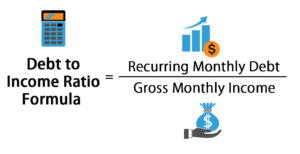MORTGAGE-WORLD.com is an online mortgage company specializing in helping borrowers applying for a mortgage.
We have over 20 years experience and are licensed in New Jersey, Connecticut and Florida.
Are you ready to take the big step towards homeownership? Applying for a mortgage is a crucial aspect of this journey. Navigating the mortgage application process might seem overwhelming, but with the right knowledge and guidance, you can secure the financing you need to purchase your dream home.
For a quicker response, call 888-958-5382.
Understanding Mortgages
Before diving into the mortgage application process, it’s essential to understand what a mortgage is. A mortgage is a loan specifically designed to help you purchase a home. The property itself serves as collateral for the loan. As you make payments over time, you build equity in your home.
Assessing Your Financial Readiness
Before applying for a mortgage, take a close look at your financial situation. Lenders will scrutinize your finances to determine if you’re a suitable candidate for a loan.
Calculating Your Debt-to-Income Ratio
One critical metric lenders consider is your debt-to-income (DTI) ratio. This ratio compares your monthly debt payments to your monthly income. A lower DTI ratio indicates better financial health and increases your chances of loan approval.
Reviewing Your Credit Score
Your credit score plays a significant role when applying for a mortgage. It reflects your creditworthiness and affects the interest rate you’ll receive. Check your credit report for errors and take steps to improve your score if needed.
Saving for a Down Payment
Most mortgages require a down payment. While the typical down payment is around 20%, there are options for lower down payments. Saving for a substantial down payment can potentially lead to better loan terms.
Choosing the Right Mortgage Type When Applying For a Mortgage
There are various mortgage types available when applying for a mortage, each with its own features. Understanding these options can help you make an informed decision.
Fixed-Rate Mortgages
A fixed-rate mortgage offers a stable interest rate throughout the life of the loan. This is an excellent option if you prefer predictable monthly payments.
Adjustable-Rate Mortgages
An adjustable-rate mortgage (ARM) comes with an initial fixed-rate period followed by rate adjustments. ARMs might be suitable if you plan to move or refinance before the adjustment period begins.
FHA Loans
FHA loans are backed by the Federal Housing Administration. They offer more flexible credit requirements and down payment options, making homeownership more accessible.
VA Loans
VA loans are available to veterans and active-duty service members. They often require no down payment and come with competitive interest rates.

Researching Lenders and Rates When Applying For a Mortgage
Choosing the right lender and interest rate is crucial to your mortgage experience when applying for a mortgage.
Comparing Interest Rates
Even a small difference in interest rates can significantly impact your monthly payments and the total cost of your loan. Compare rates from different lenders to find the best deal.
Exploring Different Lenders
Research lenders to find one that offers excellent customer service and transparent terms. Read reviews and ask for recommendations from friends and family.
Reading Lender Reviews
Reviews from other borrowers can provide insights into the lender’s reputation, customer service, and overall experience.
Gathering Documentation When Applying For a Mortgage
Lenders require various documents to process your mortgage application.
Proof of Income
You’ll need to provide recent pay stubs, tax returns, and other income-related documents.
Employment Verification
Lenders typically verify your employment to ensure a stable income source.
Tax Returns
Tax returns offer a comprehensive view of your financial situation and help lenders assess your ability to make mortgage payments.
Asset Documentation
Documentation of your assets, such as bank statements and investment accounts, gives lenders a clearer picture of your financial stability.
Starting the Application Process
Once you’re financially prepared, you can start the mortgage application process.
Pre-Approval vs. Pre-Qualification
Pre-qualification provides an estimate of the loan amount you might qualify for. Pre-approval is a more formal process that involves a thorough review of your financial documents.
Filling Out the Application Form
The application form gathers essential information about you, your finances, and the property you intend to purchase.

The Appraisal and Underwriting
After the application, the lender proceeds with the appraisal and underwriting processes.
Property Appraisal
The property is appraised to determine its value, which ensures it’s worth the loan amount.
Underwriting Process
During underwriting, the lender evaluates your application and documentation to make a final lending decision.
Loan Approval and Closing
If your application is approved, you’re on your way to closing the deal.
Receiving the Loan Estimate
The Loan Estimate provides details about your loan, including the interest rate and closing costs.
Finalizing the Loan Details
Review the Closing Disclosure, which outlines the final terms of your loan. Clear any doubts before proceeding.
The Closing Process
At the closing, you’ll sign the mortgage documents, pay closing costs, and officially become a homeowner.
Post-Closing Steps When Applying For a Mortgage
After closing, there are still essential steps to keep in mind.
Making Mortgage Payments
Set up a system to ensure timely mortgage payments to maintain good financial standing.
Understanding Escrow
Escrow accounts hold funds for property taxes and homeowners insurance, ensuring these essential payments are made.
Dealing with Changes in Financial Situation
If your financial situation changes, contact your lender immediately to discuss options and avoid potential issues.
Conclusion to Applying For a Mortgage
Applying for a mortgage is a significant undertaking, but armed with the right knowledge, you can navigate the process successfully. Remember, each step, from assessing your finances to closing the deal, is crucial. By following this guide and seeking professional advice when needed, you’ll be well on your way to achieving your homeownership dreams.
FAQs
1. Can I apply for a mortgage with a low credit score? Yes, you can. While a higher credit score helps, there are mortgage options available for individuals with lower credit scores.
2. How long does the mortgage application process typically take? The process can vary, but on average, it takes around 30 to 45 days from application to closing.
3. What are closing costs? Closing costs include various fees associated with finalizing the mortgage, such as appraisal fees, title insurance, and attorney fees.
4. Can I negotiate the interest rate with the lender? Yes, you can negotiate the interest rate with some lenders, especially if you have a strong credit history.
5. Is it possible to pay off my mortgage early? Yes, many mortgages allow for early repayment. However, some may have prepayment penalties, so it’s essential to review your loan terms.
CALL 888-958-5382 or APPLY NOW!!

Mortgage-World
Comments are closed.